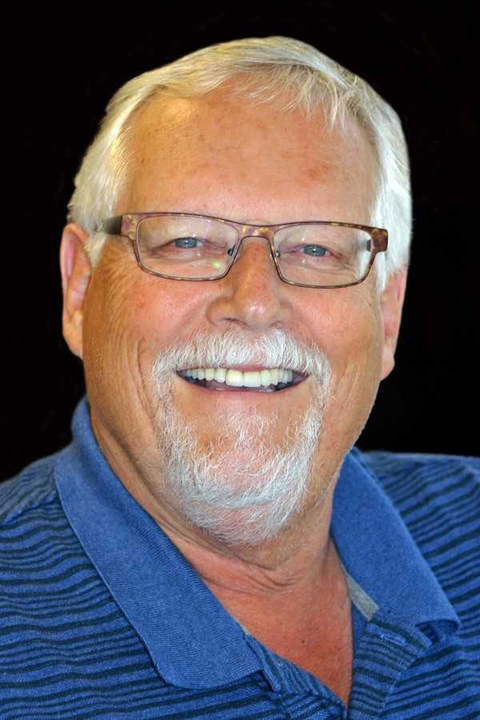
The future is bright for travel agents. That’s the key takeaway from our recent discussion with Harry Dalgaard, founder, president and CEO of FIT provider Avanti Destinations, who just announced his intention to retire June 30.
Dalgaard founded Avanti in 1981 to provide FIT to Europe. Since then, it’s added destinations in Latin America and Asia and grown to a company that employs 135 people and annually creates custom itineraries for nearly 50,000 travelers, all booked through travel agents. Dalgaard spoke with Travel Agent about how the travel industry has changed over the course of his career, and where it could be headed next.
“The biggest change is technology and how that’s enabled the traveler, travel agent and tour operator to develop their product, customize it, personalize it, and make it easier to sell in the FIT arena,” Dalgaard said. “If you go back and look at Telex, faxes and printed brochures as being the only way of marketing and advertising, it’s totally evolved.”
In particular, technology has been the biggest enhancer of individual travel, Dalgaard said, as travelers feel more knowledgeable and empowered to step outside traditional travel patterns.
What does that mean for travel agents? “I’m very optimistic about the future of travel agents,” Dalgaard said, noting that, while the commission cuts of the 90’s had prompted major attrition in the industry, agents have come back stronger than ever.
“In one sense that was good because it created a much more professional atmosphere of core people that understood what they could do for the customer, tour operator and destination,” Dalgaard said. “As we evolve today, the travel agent has to know his customer -- it’s about personal service, knowing previous travel patterns, recommendations on new destinations.”
Understanding your customer and having strong destination knowledge are the two key reasons customers will come to you, Dalgaard said.
The drive to use a travel agent is particularly strong among Millennials.
“We’re seeing them go to travel agencies, which is extraordinary, as a time savings and, more importantly, as an advocate for the traveler if something goes wrong,” Dalgaard said. “They have someone to talk to instead of just being lost in cyberspace.”
That time savings element is a key appeal.
“Millennials aren’t poor -- they have money,” Dalgaard said. “They’re time poor. Americans take less vacation time than anyone else in the Western world and they want it done well.”
What’s Dalgaard’s top advice for someone looking to jump into the travel industry?
“I think the important thing is that whoever goes into this business looks at where there’s a need and trying to fulfill it,” Dalgaard said. “For me it was international FIT travel, primarily to Europe, but then we progressed to Latin America and Asia. I think certainly the opportunity is there for more personal service, more unique experiences. You have to understand what value you can bring to the distribution chain.”
A growing travel industry will lead to even more opportunities ahead, according to Dalgaard.
“International travel is now something that’s not seen as exotic, it’s something that’s seen as a right,” Dalgaard said. “It’s part of a growing movement of educating oneself in the world and becoming a global citizen.”
Travel agents can take part in that movement by providing unique, personal experiences for their clients. “People travel not to go on a plane ride or stay in a hotel, they travel to have unique experiences,” Dalgaard said, noting that, on a trip to London he took two weeks ago, he had an eye-opening tour of the Houses of Parliament that made TV shows like The Crown come to life.
“That’s why people travel -- it’s not to say that I stayed at the Ritz, that’s wonderful, but it’s really that interaction bringing that history to life,” Dalgaard said.
In terms of challenges ahead, Dalgaard said that travel agents’ biggest challenge will be ensuring that they find new clients and keep existing ones. He advises being available to customize and personalize people’s experiences and trips.
“A failure to adopt the tools that allows them to meet the customer’s needs does not bode well,” Dalgaard said.
Looking back, the biggest lesson Dalgaard has drawn from his career is the importance of face-to-face interaction.
"The temptation today is so great to rely on electronic, online communications when it comes to employees and suppliers, as well as customers,” Dalgaard said. “But communicating in-person is irreplaceable. It leads to stronger relationships. I heartily recommend it."
Those relationships are among Dalgaard’s fondest memories of his time running Avanti.
“I think I feel extremely lucky to have started Avanti when I did,” Dalgaard said. “I accomplished my initial goals, and the best thing I feel is all the wonderful people that I worked with, whether they’re customers or suppliers that I’ve worked with over the years and really created lasting friendships.”
After his retirement, Dalgaard plans to keep traveling. “I live in a lovely place, Portland,” he said. “It’s a great place to bring up a family, but I have all these global friendships I can’t wait to visit after I retire. My career has allowed me to be a globalist and I love it.”
Related Stories
Avanti Founder Harry Dalgaard to Retire
Avanti: "Beach Plus" Vacations in Southeast Asia Are Trending